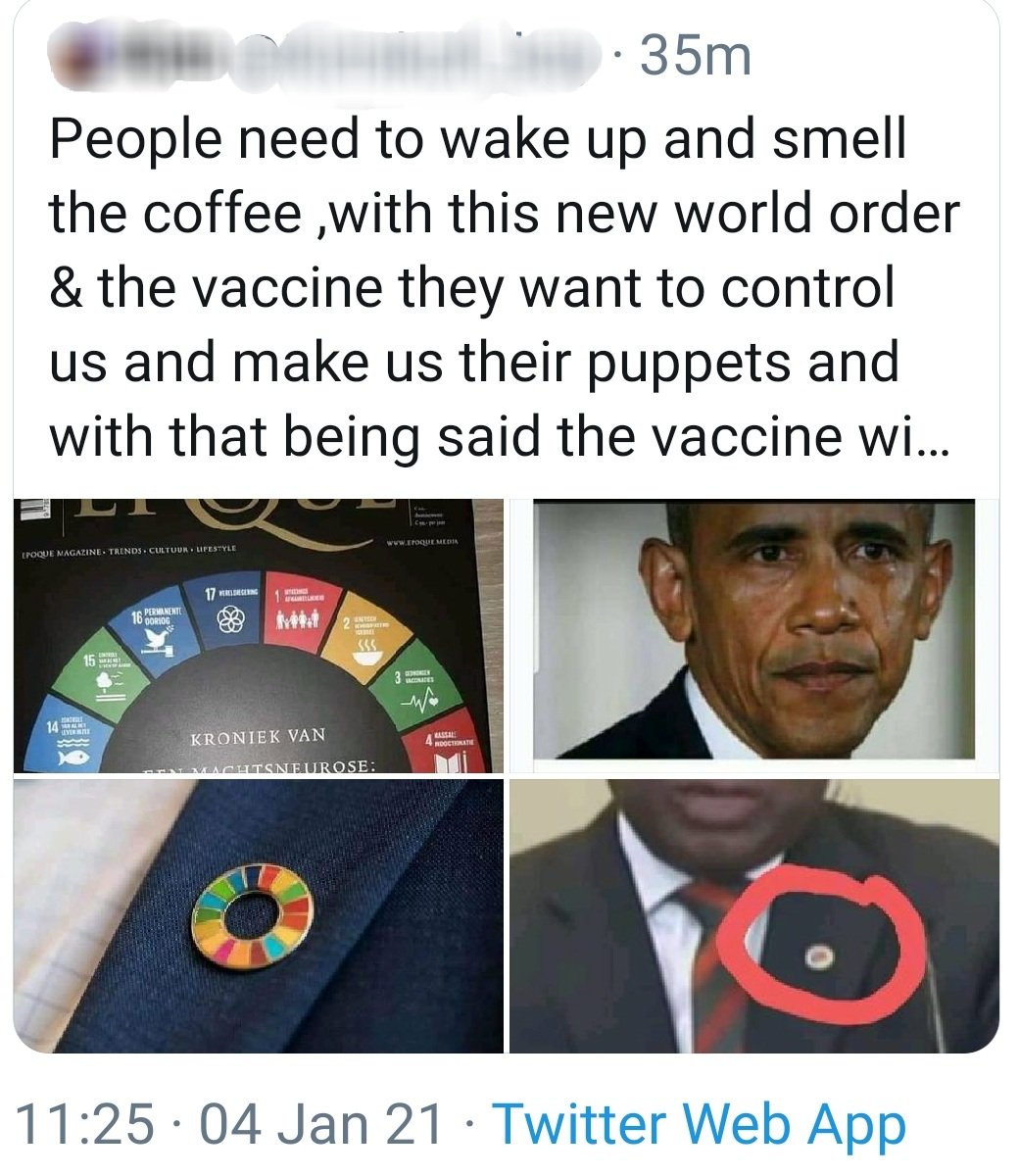
Finally someone describes this in a way that makes some sense to me, and that coherently explains why these Trump-loving people can't tell me what news sources they trust: They're not interested in the news; they're game addicts. They get their worldview and rules from the game.
https://twitter.com/SethAbramson/status/1339045051859677186
#SystemsThinking:
"You're not stuck in traffic; you're traffic."
People who are able to describe and interpret an emergent phenomenon (and what lies beneath) are truly undervalued.
"You're not stuck in traffic; you're traffic."
People who are able to describe and interpret an emergent phenomenon (and what lies beneath) are truly undervalued.
https://twitter.com/SethAbramson/status/1339054679175688192?s=19
At the point where the Trump/QAnon anti-masker asks me to "prove that Trump is a criminal but don't quote CNN or BBC, because they're fake news," I ask them which news sources they trust, so that I can attempt to limit myself to those; then the conversation stops.
It's like, ALL news is fake news, regardless of who reports it, unless it correlates with a message they got from the game. Game worlds have a certain internal consistency. If you willingly suspend disbelief, you accept every mythological fact presented by the game.
This Trump/QAnon game is so dangerous because it's a blended reality gamer and players carry real weapons.
Kyle Rittenhouse shot real people with a real gun in a real street.
Trump sacrificed Kurds Ukrainians, Yemenis, 300,000+ Americans and more, because this was a game. Gamers are safe behind a screen. Their emotions may be real ("You insulted me, I'll blow up your assets"), but there aren't real guys with firethrowers beyond their bedroom door.
The fun thing for the Proud Boys, QAnons and their ilk is being able to go several notches beyond Ingress and making it feel like there are real goals. Like #SaveTheChildren.
Anyone need reminding where the QAnon cult started?
It's all a GAME. Real people are dying in a GAME.
Anyone need reminding where the QAnon cult started?
It's all a GAME. Real people are dying in a GAME.
I've re-read my thread 👆 and if you caught the gist, congratulations, because I made many typing mistakes and said several things in ambiguous ways.
Be sure to read Seth's thread. Mine is just a musing; his is the real substance.
Be sure to read Seth's thread. Mine is just a musing; his is the real substance.
https://twitter.com/SethAbramson/status/1339048459278671873?s=19
Wow, Reed Berkowitz' article was such a cathartic read for me. I now understand why, while QAnon has many traditional cult elements, it quite doesn't fit the regular cult pattern.
https://twitter.com/soi/status/1311739423839711235?s=19
Lemme just pop this into here too: an essay by a former ARG 'puppetmaster', about QAnon being an ARG: medium.com/@registrarproj…
OK, I curated all this into a single article. QAnon is an Alternate Reality Game. Pass it on. tania.co.za/wake-up-think-…
Apophenia. It's the keyword that's missing from my article.
And this must be one of the links too.
https://twitter.com/UnrollHelper/status/1340957175326400514?s=19
OK, updated...
Uh, we're here now.
https://twitter.com/SethAbramson/status/1341613290233999361?s=19
Meanwhile @jimstewartson has been saying Michael Flynn is in with the top guys at QAnon, and people were just moving on. Because QAnons spot too many patterns, but other people see too few?
I see (and like) that several other commentators have been referring to QAnons as "LARPers" for quite some time.
Thread about Flynn and his involvement with QAnon, which has become major media news this week (but has been going on for a long time):
Thread about Flynn and his involvement with QAnon, which has become major media news this week (but has been going on for a long time):
https://twitter.com/jimstewartson/status/1339286640838148096?s=19
A typical example of apophenia as the ARG spills beyond the US and its keywords start trending in other countries. Note the connecting of symbols. 

How Jake Angeli turned into the absurd success icon of the Russian disinformation campaign via QAnon.
https://twitter.com/haaretzcom/status/1347229007100608515?s=19
"We don't trust the government. We don't trust the Congress. We don't trust the Supreme Court. We don't trust now the science. We don't trust medicine. We don't trust the media for sure," Kruglanski said.
"So who do we trust? Well, we trust our tribe. We trust conspiracy theories that tell us what we want to hear."
Read the rest here:
https://twitter.com/RYP__/status/1339285098697396224?s=19
So Trump is, like, Xenu after all? Pffff. Okaaay. news.com.au/world/north-am…
Just a reminder that some of these people who accuse others of abusing children have actually been abusing children themselves, for years before QAnon was invented.
Thread:
Thread:
https://twitter.com/ekverstania/status/1290609135315230722?s=19
When you don't have great thinking skills - like when you believe your own fallacious arguments, succumb to ill-suited cognitive biases, and never engage in metathinking - then "Think for yourself!" is no better and often no different from contracting out your thinking to others.
Game over. m.huffpost.com/us/entry/us_60…
Ah, deep, and well illustrated. Connects QAnon to many of the characters in the Proof series by Trump's biographer @SethAbramson, and identifies Flynn as central to all this, as @jimstewartson has also done. Have to update my curatorial article now. blog.usejournal.com/qanon-is-propa…
• • •
Missing some Tweet in this thread? You can try to
force a refresh


